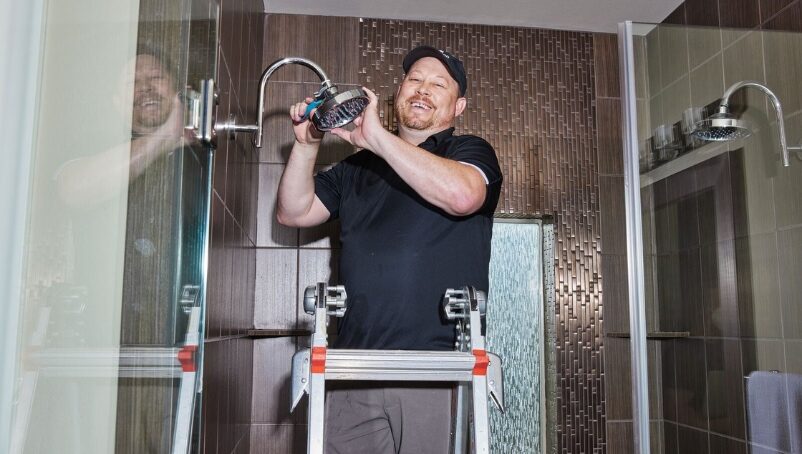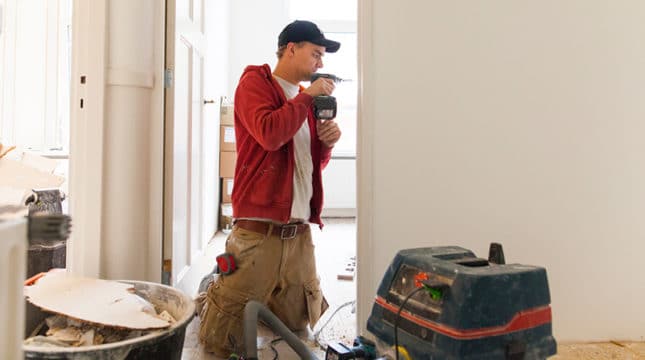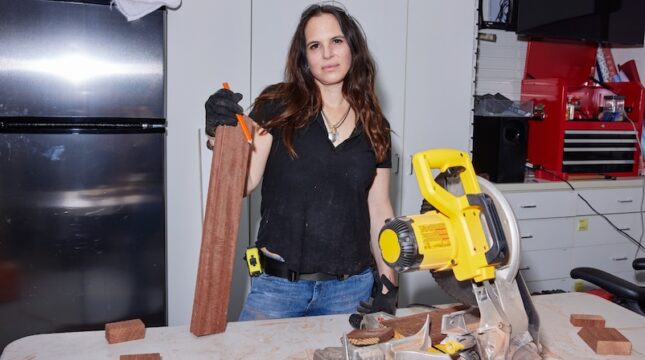How to get a handyman license in Arizona
There are no Arizona handyman license requirements since the state doesn’t issue this type of license.
If you need a residential or general contractor license based on the nature of your work, you must apply to the Arizona Registrar of Contractors. You must complete the following steps when submitting your application.
Choose your license classification
The Registrar of Contractors issues separate licenses for commercial and residential work as well as dual licenses for those who wish to perform both types of work.
Arizona offers the following contractor license classification categories:
- Engineering Contracting (Commercial)
- General Commercial Contracting
- Residential Contracting
- Specialty Residential Contracting
- General Dual Engineering Contracting
- General Dual License Contracting
- Specialty Dual License Contracting
- Specialty Commercial Contracting
Pass the exams
All applicants must complete two licensing exams:
- The Arizona Statutes and Rules Training Course and Exam (SRE)
- A specific trade exam
You must pass the required examinations with a score of at least 70%. Some applicants may obtain a waiver for the trade exam if they hold a license from another state.
Submit a background check
You must undergo a criminal background check before submitting your application. All applicants must obtain a background check online through PeopleG2.
Get a bond
Applicants must file a contractor’s bond in the amount required for their chosen classification. The bond amount will depend on the type of work you plan to do and the estimated gross volume of work. For example, a residential general contractor with a work volume of less than $750,000 would need a $9,000 bond.
Pay the fees
License and application fees vary depending on which license classification you’re applying for. Application fees range from $80 to $200, while license fees range from $270 to $580.
Some license classifications also include a recovery fund assessment of $370. However, this fee may be waived by furnishing a $200,000 surety bond or cash deposit.
Arizona contractor license requirements
Most Arizona contractor classifications require at least four years of professional experience. Select classifications may require fewer years of experience. In some cases, no experience is required as long as the applicant passes their trade exam.
The Arizona Registrar of Contractors provides a detailed list of experience requirements for contractor licensing.
How long does it take to get your contractor license?
It takes approximately 60 days to process most Arizona contractor licenses. This includes a period of 20 days, during which an administrative completeness review determines whether the application is missing any important documents or information, followed by a 40-day substantive review of the applicant’s qualifications.
Arizona contractor license renewal requirements
To maintain your Arizona contractor license, you must renew it every two years. Contractors must pay a license renewal fee and, if applicable, a recovery fund assessment.
What kind of insurance does a handyman need in Arizona?
Getting the right business insurance in Arizona to operate as a handyperson or contractor is vital to protect your business. The following types of insurance are highly recommended for professionals in this line of work.
Workers’ Compensation insurance
All Arizona employers must have workers’ compensation insurance regardless of the employee’s status or relationship with the business owner. Contractors and handymen who don’t have employees often get this insurance to ensure they have wage protection and other benefits if they get injured on the job.
If you apply for an Arizona contractor license, you’ll be required to provide a workers’ comp policy number or attest to having no employees.
General Liability insurance
One popular type of small business insurance for handypeople is general liability insurance. This type of coverage helps pay for expenses related to work-related accidents and damage to someone else’s property.
Tools and Equipment insurance
Tools and equipment insurance helps cover the gear you use for work. If damage or theft occurs, this insurance coverage can contribute to the cost of repairs or replacements.
Commercial Auto insurance
Handypeople who drive for work typically need commercial auto insurance, which helps pay for accident-related costs like towing, repairs, rental reimbursement and medical expenses.
Commercial Property insurance
Commercial property insurance helps cover the costs of damage or vandalism at a property you own or rent as well as the inventory or equipment stored at that location.
How NEXT Insurance supports Arizona handypeople
NEXT makes it easy to find the right handyman insurance to protect your business. We’ve created custom insurance packages for thousands of professionals like you, and our affordable monthly rates help keep your business costs low.
To get insured, simply visit our online portal to view your policy options, apply for coverage and get a certificate of insurance. The whole process only takes minutes, and you can easily access your account from any computer or mobile device when you need to make changes to your coverage or download additional COIs.
Get an instant quote online today.
Do you want to work as a handyman in another U.S. state? Learn more about the requirements in our guide to handyman licensing.
This information has been provided as a service. It is correct and up-to-date to the best of our knowledge; however, it is in no way intended to offer legal advice and you must always consult with local authorities before you make any business decisions. Regulations and requirements may change at any time.







